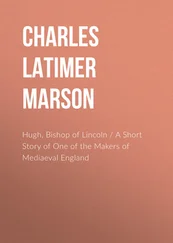Paul Vinogradoff - Villainage in England - Essays in English Mediaeval History
Здесь есть возможность читать онлайн «Paul Vinogradoff - Villainage in England - Essays in English Mediaeval History» — ознакомительный отрывок электронной книги совершенно бесплатно, а после прочтения отрывка купить полную версию. В некоторых случаях можно слушать аудио, скачать через торрент в формате fb2 и присутствует краткое содержание. Жанр: foreign_prose, Юриспруденция, История, foreign_edu, foreign_antique, на английском языке. Описание произведения, (предисловие) а так же отзывы посетителей доступны на портале библиотеки ЛибКат.
- Название:Villainage in England: Essays in English Mediaeval History
- Автор:
- Жанр:
- Год:неизвестен
- ISBN:нет данных
- Рейтинг книги:4 / 5. Голосов: 1
-
Избранное:Добавить в избранное
- Отзывы:
-
Ваша оценка:
- 80
- 1
- 2
- 3
- 4
- 5
Villainage in England: Essays in English Mediaeval History: краткое содержание, описание и аннотация
Предлагаем к чтению аннотацию, описание, краткое содержание или предисловие (зависит от того, что написал сам автор книги «Villainage in England: Essays in English Mediaeval History»). Если вы не нашли необходимую информацию о книге — напишите в комментариях, мы постараемся отыскать её.
Villainage in England: Essays in English Mediaeval History — читать онлайн ознакомительный отрывок
Ниже представлен текст книги, разбитый по страницам. Система сохранения места последней прочитанной страницы, позволяет с удобством читать онлайн бесплатно книгу «Villainage in England: Essays in English Mediaeval History», без необходимости каждый раз заново искать на чём Вы остановились. Поставьте закладку, и сможете в любой момент перейти на страницу, на которой закончили чтение.
Интервал:
Закладка:
We find a similar state of things at King's Ripton. The manor had been let in fee farm to the Abbots of Ramsey. In case of a tenement lapsing into the lord's hands, it is seized sometimes by the bailiff of the king, sometimes by the bailiffs of the Abbot 198 198 King's Ripton Court Rolls, Augment. Off. Rolls, xxiii. 94, m. 10: 'Dicta Matildis optulit se versus Margaretam Greylaund de placito dotis, que non venit. Ideo preceptum est capere in manum domini Regis medietatem mesuagii etc.—pro defectu ipsius Margarete. Eadem Matildis optulit se uersus Willelmum vicarium—qui non uenit. Ideo preceptum est capere in manum domini Regis medietatem quinque acrarum terre etc. (Curia de Riptone Regis die Lune in festo sanctorum Protessi et Marciniani anno [r. r. E. xxiv. et J. abb. x]); m. 10, d.—Qui venit et quantum ad aliam acram dicit, quod non est tenens set quod Abbas seysiuit illam in manum suam. (Curia—in festo Assumpcionis—anno supra dicto).' In the first case the seizure corresponds to the 'cape in manum' of a freehold. As there could be no such thing in the case of villainage, and the procedural seizure was resumption by the lord, the point is worth notice and may be explained by the King's private right still lingering about the manor. The last case is one of escheat or forfeiture.
. The royal writs again are directed not to the Abbot, but to his bailiff. The same was the case at Stoneleigh 199 199 Stoneleigh Reg. 75 v: 'Item si aliquis deforciatur de tenemento suo et tulerit breve Regis clausum balliuis manerii versus deforciantes, dictum breve non debet frangi nisi in curia.'
, and indeed this seems to have been the regular course on ancient demesne manors 200 200 Natura brevium, 13: 'Balliuis suis.'
. This curious way of ignoring the lord himself and addressing the writ directly to his officers seems an outcome of the fundamental assumption that of these manors there was no real lord but the king, and that the private lord's officers were acting as the king's bailiffs.
According to current notions the demesnes of the crown ought not to have been alienated at all. Although alienated by one king they were considered as liable to be resumed by his successors 201 201 Britton, i. 221: 'Rois aussi ne porrount rien aliener les dreits de lour coroune ne de lour reaute, qe ne soit repellable par lour successours.'
. And as a matter of fact such resumptions were by no means unusual. Edward I gave an adequate expression to this doctrine when he ordered an inquisition into the state of the tenantry at Stoneleigh:—he did not wish any encroachment made on the old constitution of the manor, for he had always in mind the possibility that his royal rights would be resumed by himself or by one of his successors 202 202 Stoneleigh Reg. 30: 'Nos attendentes, quod huiusmodi alienaciones et consuetudinum mutaciones eciam in nostri et heredum nostrorum preiudicium et exheredacionem cedere possent, si manerium illud in manus nostras aliquo casu deuenerit sustinere nolumus sicut nec debemus manerium illud aut ea que ad illud pertinent aliter immutari quam esse solebant temporibus predictis.'
.
Services certain on Royal Manors.
If we turn to the court rolls of a manor which is actually in the king's hand and compare them with those of a manor which he has granted to some convent or some private lord, we see hardly any difference between them. The rolls of the manor of Havering at the Record Office, although comparatively late, afford a good insight into the constitution of a manor retained in the king's own hand. They contain a good many writs of right, and though, naturally enough, the tenants do not bring actions against the king, we find an instance in which the king brings an action against his tenant, and pleads before a court which is held in his own name 203 203 The writs are directed sometimes to the bailiffs of the Archbishop of Canterbury and of the Duke of Albemarle, who had the manor in custody for King Richard II, but in the twenty-third year they are inscribed to the King's bailiffs. (Augmentation Court Rolls, xiv. 38). As to the trial mentioned in the text see App. IX.
. This is good proof that the condition of the tenants was by no means dependent on the arbitrary action of the manorial officers. When King Henry II granted Stoneleigh to the Cistercians he displaced a number of 'rustics' from their holdings, and while doing this he recognised their right and enjoined the sheriff of Warwickshire to give them an equivalent for what they had lost in consequence of the grant 204 204 Stoneleigh Reg. 11 a: 'Precipio tibi quod sine dilacione deliberes Abbati de Stonleia omnes terras et tenuras quas ego dedi et carta mea confirmaui. Et de terra quam rustici uersus calumpniantur et quam ego ei dedi et concessi, inquire si rectum in ea habuerunt et si rectum in ea habent, dona eis rusticis alibi in terra mea excambium ad valenciam.'
. The notion from which all inquiry consequent upon a 'Monstraverunt' starts is always this, that the tenants were holding by certain (i.e. by fixed) services at the time when the manor was in the king's own hand. The certainty is not created by the fact that the manor passes away from the king to some one else; it exists when the land is royal land and therefore cannot be destroyed on land that has been alienated. So true is this that Bracton and Britton give their often cited description of privileged villainage without alluding to the question whether or no the manor is still in the king's hand 205 205 Bracton, f. 209: 'Ad quemcumque manerium peruenerit.'
; Britton even applies this description primarily to the king's own possessions by his way of stating the law as the direct utterance of the king's command. The well-known fact that the 'ferm' or rent of royal manors was not always fixed, that we constantly hear of an increased rental ( incrementum ) levied in addition to the old 'ferm' ( assisa ; redditus antiquitus assisus ), can be easily reconciled with this doctrine 206 206 Madox, Firma Burgi, 54; Pipe Rolls, passim. Cf. Rot. Cur. Regis Ric., p. 15: 'Homines de Kingestone—c. sol. … pro respectu tenendi villam suam ad eandem firmam quam reddere solebant tempore Henrici Regis.'
. The prosperity of the country was gradually rising; both in agricultural communities and in towns, new tenements and houses, new occupations and revenues were growing, and it was not the interest either of the communities or of the lord to compress this development within an unelastic bond. In principle the increased payments fell on this new growth on the demesne, although this may in some cases have been due to exactions against which the people could remonstrate only in the name of immemorial custom, and only by way of petition since nobody could judge the king. In principle, too, certainty of condition was admitted as to the privileged villains on the king's demesnes 207 207 Madox, Exch. 1437, z: 'Homines de Lechton x marcas pro habenda inquisicione per proxima halimota et per legales milites et alios homines de visneto, quas consuetudines ipsi fecerunt tempore Henrici Regis Patris.' (Pipe Roll. 4 John.) Cf. 442, a: 'Homines de Stanleya reddunt compotum de uno palefrido, ut inquiratur per sacramentum legalium hominum, quas consuetudines et quae servitia homines de manerio de Stanleia facere consueverunt Regi Henrico patri Ricardi Regis dum essent in manu sua.' (Pipe Roll, 9 John.)
.
Trial of services in 'Monstraverunt'.
This serves to explain the procedure followed by the court when a question of services was raised by a writ of 'Monstraverunt.' The first thing, of course, was to ascertain whether the manor was ancient demesne or not, and for this purpose nothing short of a direct mention in Domesday was held to be sufficient 208 208 Y.B., Trin., 49 E. III, pl. 8 (Fitzherbert, Abr. Monstrav. 4): ' Han. mist auant record de Domesday qui parla ut supra :— Terra sancti Stephani en le title qui parla de ceo maner que il fuit en sa maine. Et auxi il mist auant chartre le Roy que ore est, par quel le roy reherse quil ave viewe la chartre le roy Henri le primer, et reherce tout le chartre, et ceo chartre voilet que Henri aue viewe par ceo parolle inspeximus la chartre le roy William Conquerour qui aue done graunte e confirme mesme le manor a un Henri Butle, a luy, et a ces heirs a ceo iour, quel chartre issint volent inspeximus cartam domini Edwardi Regis Anglie issint par le recorde et par les chartres est expressement reherce par le roy qui ore est, que William Conquerour fuit en possession de ceo maner, Seinct Edward auxint, en quel cas ceo serra aiudge auncient demesne tantamont come si la terre ust estre en la main Seint Edward par expresse parolx en le Domesday. Belknap : Le comen fesance de chartres est de faire parolle en le chartre dedimus concessimus et confirmauimus et uncore le chartre est bon assets al part, mesque le roy nauer riens a ceo temps, issint que riens passe par ceo paroll dedimus mes il auer par parole de confermement, issint que il nest my proue par ce chartre que ils auoient la possession, pur ceo que les chartres poient estre effectuels a auter entent, scilicet, en nature de confermement, et auxi ces chartres fait par Seint E. et W. Conquerour ne sont my monstres a ore pur record, issint que mesque il furent monstre, et auxi purroit estre proue que le maner fuit en lour possession, nous ne puissomus pas aiudger la terre auncien demesne, pur ceo que auncien demesne sera aiudge par le liuer de domesday qui est de record, et nemy en autre maner. Et puis les plaintifs fuerent nonsues.'
. When this question had been solved in the affirmative, a jury had to decide what the customs and duties were, by which the ancestors of the plaintiffs held at the time when the crown was possessed of the manor. In principle it was always considered that such had been the services at the time of the Conquest 209 209 Fitzherbert, Abr. Cause de remover ple, 18 (Y.B., M., 21 Edw. III): ' Wilby : Il conuient que il count en le monstrauerunt que il luy distreint pur auters customes que ses auncestres ne fecerunt en temps W. Conquerour, cas le monstrauerunt ne gist pas forsque en cas ou plusiours services sont demandez que ces auncestres ne solent faire en cel temps.'
, but practically, of course, there could be no attempt to examine into such ancient history. The men of King's Ripton actually pleaded back to the time of King Cnut, and maintained that no prescription was available against their rights as no prescription could avail against the king 210 210 Coram Rege, Tr. 3 Edw. I, m. 14, d: 'Et unde predicti homines (de Kyngesripton) queruntur quod temporibus Cnout regis quo manerium illud fuit in manu dicti antecessoris sui tenuerunt tenementa sua per seruicia subscripta, videlicet reddendi pro qualibet virgata terre 5 solidos, etc. Et omnes antecessores sui tenuissent tenementa sua per predicta seruicia usque ad conquestum Anglie, et a conquestu usque ad tempus regis Henrici aui regis Johannis aui domini regis nunc, usque ad tempus cuiusdam Abbatis de Rameseye Roberti Dogge nomine qui tempore Henrici Regis distrinxit antecessores suos ad dandum relevium pro voluntate sua, etc. Et Abbas dicit quod non debet eis ad hoc breue respondere, quia desicut in narracione sua non faciunt mencionem quod ipsi extitissent in tali statu in quo fuerunt tempore regis Knout, quem statum ipsi clamant habere, tempore aliorum regum de quo memoria haberi possit nec de quo breue de recto currit nec aliqua verificacio per patriam fieri possit.... Et Reginaldus et alii bene cognoscunt quod ipse Abbas et predecessores sui exstiterunt in seysina percipiendi ab ipsis et antecessoribus suis predicta seruicia indebita a tempore predicti Henrici regis. Set desicut istud breue quod conceditur in fauorem dominicorum domini Regis non habet prescriptionem temporis, petunt judicium si [racione?] alicujus longiqui termini debeant ab actione excludi sua.'
. The courts naturally declined to go higher than men could remember, but they laid down this limitation entirely as one of practice and not of principle 211 211 Y.B., M., 15 Edw. II, p. 455: ' Bereford : Coment puit cest brief vous servir la ou il (the defendant) dist qe luy et ces predecessors ont este de vous et de vos auncestres (seisi) de tout temps come, etc., et vos ont taille, etc. Devoms nous enguerre (enquerre corr. ) si vos feistes touz services en temps le Roy S t . Edward, ou non de temps que vos avez pris title? Devon : Sir navyl (nanyl corr. ), mais nous disons qe touz les tenants qui tindrent en temps S t . Edward tinderent, etc. (par certains services) … tanqe a ore xv ans devant le brief purchace etc. e ceo puit home enquere.'
. Metingham demanded that the claimants should make good their contention even for a single day in Richard Cœur de Lion's time 212 212 Y.B., 21/22 Edw. I, 499 et sqq.
. The men of Wycle combine both assertions in their contention against Mauger; they appeal to the age of the first Norman kings, but offer to prove the certainty of their services in the reigns of Richard and John 213 213 Coram Rege, Pasch. 1 Edw. II, m. 26: 'Postquam idem manerium ad manus antecessorum predicti Maugeri deuenit usque ad tempus memorie, videlicet temporibus regum Ricardi, Johannis et statum illum toto tempore predicto pacifice continuaverunt et habuerunt.' Coram Rege, M. 5 Edw. II, m. 77: 'Unde queruntur quod cum ipsi homines et eorum antecessores tempore Regum Anglie progenitorum domini Regis nunc, videlicet tempore Regis Willelmi Conquestoris et Willelmi Regis filii sui et eciam tempore Regis Henrici primi solebant tenere terras suas per quaedam certa seruicia videlicet,' etc.
.
Интервал:
Закладка:
Похожие книги на «Villainage in England: Essays in English Mediaeval History»
Представляем Вашему вниманию похожие книги на «Villainage in England: Essays in English Mediaeval History» списком для выбора. Мы отобрали схожую по названию и смыслу литературу в надежде предоставить читателям больше вариантов отыскать новые, интересные, ещё непрочитанные произведения.
Обсуждение, отзывы о книге «Villainage in England: Essays in English Mediaeval History» и просто собственные мнения читателей. Оставьте ваши комментарии, напишите, что Вы думаете о произведении, его смысле или главных героях. Укажите что конкретно понравилось, а что нет, и почему Вы так считаете.












